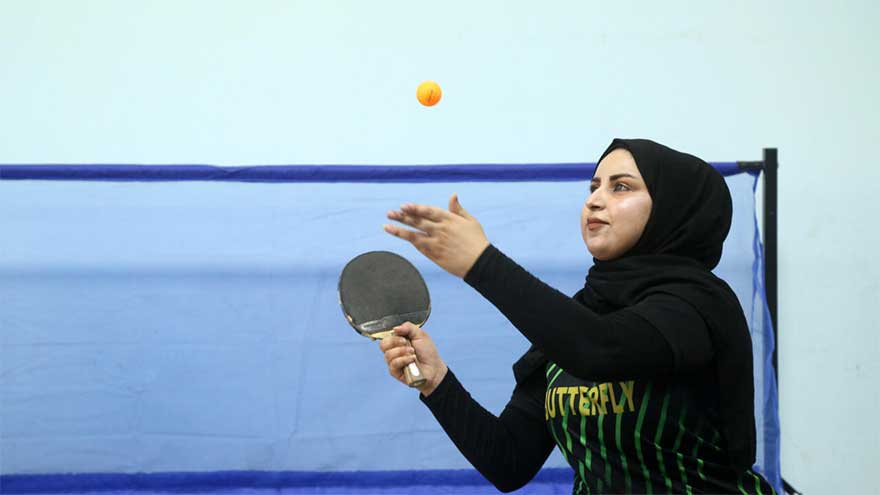In the scorching heat of Diwaniyah, southern Iraq, para table tennis player Nur al-Huda Sarmad adjusts her wheelchair before serving the ball, determined to defy the odds. Alongside seven other women with disabilities, she trains three times a week at a local community center, hoping to qualify for the national Paralympic team. However, their journey is fraught with challenges, from broken equipment to frequent power outages. “The tennis tables are damaged, and we even have to buy our own paddles,” said Sarmad, 25, highlighting the lack of basic resources.
The team struggles with inadequate facilities, sharing three second-hand tables in a public space not designed for professional training. Sweltering summer temperatures, which often near 50°C (122°F), make conditions even harsher. Fans cannot be used as they disrupt the ball’s movement, and the air conditioning remains off due to Iraq’s chronic electricity shortages. Running on a generator, the center can barely sustain essentials, severely impacting the athletes’ progress. “These issues affect our training,” Sarmad admitted, underscoring the obstacles they face.
Beyond logistical hardships, the team battles societal stigma and insufficient government support for para sports. Paralympic gold medalist Najlah Imad, Iraq’s first table tennis champion, urged the players to persevere: “Despite the difficult circumstances, nothing is impossible.” Sarmad, who has already won medals, including bronze in Thailand, takes pride in her resilience. Yet, financial constraints persist—players receive a $75 monthly stipend for transport but must pay $200 for their own paddles. Taxis often refuse disabled passengers, adding another layer of difficulty.
Coach Mohammed Riyad, a member of Iraq’s Paralympic Committee, lamented the lack of state backing for para sports. “Table tennis has developed in Diwaniyah solely through personal efforts,” he said, citing Iraq’s focus on football despite para athletes’ achievements. Through the committee, Riyad has secured old equipment for the team, but systemic neglect remains. As Sarmad and her teammates push forward, their story reflects both the struggles and determination of Iraqi para athletes striving for recognition on the world stage.














